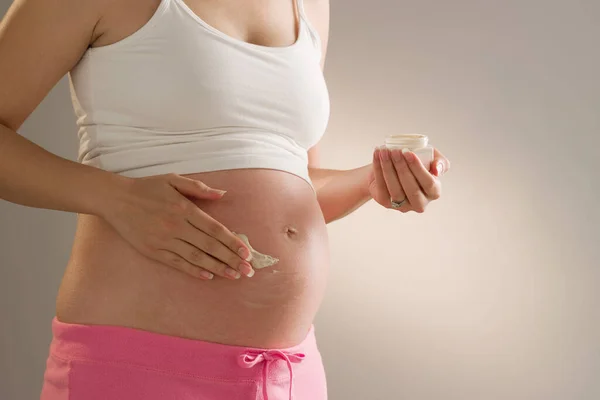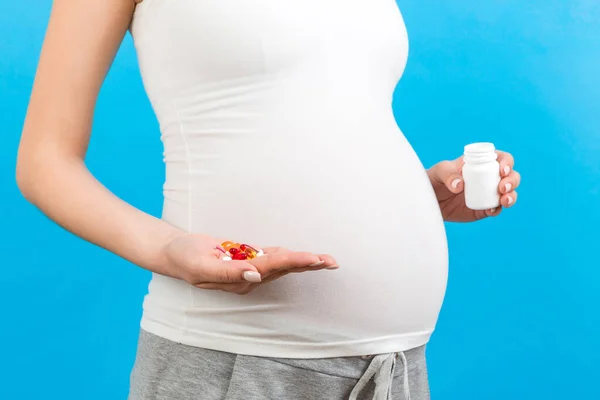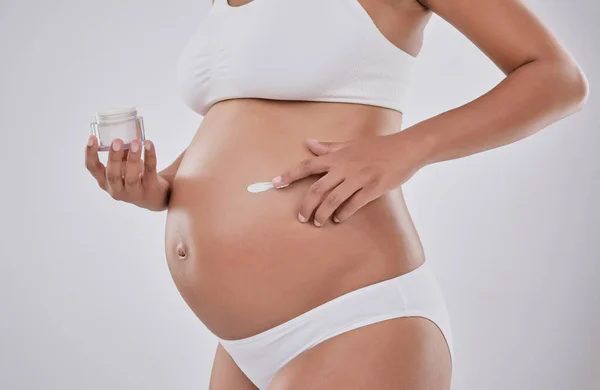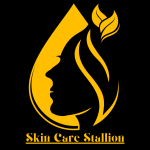
Is Vitamin E Skincare safe during pregnancy
Yes, Vitamin E skincare is generally considered safe during pregnancy when used in topical formulations. It is an antioxidant that can help improve skin elasticity, reduce stretch marks, and support overall skin health.
However, it’s essential to use Vitamin E in moderation and consult with a healthcare professional before incorporating it into your skincare routine, especially during pregnancy.

Understanding Vitamin E in Skincare During Pregnancy
Vitamin E is a fat-soluble antioxidant commonly found in skincare products. Known for its ability to protect and repair the skin, Vitamin E can help fight free radical damage, moisturize, and promote skin healing.
Pregnant women often turn to Vitamin E creams and oils to prevent and reduce stretch marks, as the ingredient is known for improving skin elasticity and hydration.
While Vitamin E is considered safe in topical applications, it’s crucial to choose products that are designed for sensitive skin, as pregnancy can sometimes lead to unexpected skin reactions.
Benefits of Using Vitamin E Skincare Products While Pregnant
During pregnancy, the skin undergoes several changes due to hormonal fluctuations. Vitamin E can play an essential role in maintaining skin health, especially for expecting mothers.
The most notable benefit of Vitamin E is its ability to deeply moisturize and support skin barrier function, which helps protect the skin from irritation. Pregnant women often experience dryness or sensitive skin, and Vitamin E can provide relief by replenishing lost moisture.
Moreover, using Vitamin E products on the belly can help reduce the appearance of stretch marks, making it a favored ingredient for prenatal skincare routines.
Potential Risks of Vitamin E Skincare During Pregnancy
Although Vitamin E is generally safe for topical use during pregnancy, there are some considerations to keep in mind. High concentrations of Vitamin E or oral supplements should be avoided without a doctor’s advice, as too much Vitamin E can potentially cause harm.
It’s also important to test any new skincare product before regular use, as pregnancy may increase sensitivity or cause allergic reactions to ingredients you previously tolerated. Always opt for products formulated for sensitive skin or designed specifically for pregnancy to avoid irritation or breakouts.
Vitamin E in Pregnancy Safe Skincare Products
Many skincare brands offer pregnancy safe products that include Vitamin E as a key ingredient. These products are designed to provide hydration, reduce the appearance of stretch marks, and enhance overall skin health.
When choosing a Vitamin E skincare product, ensure it is free from harmful chemicals, artificial fragrances, and parabens that could potentially affect your skin during pregnancy.
Stick to reputable brands that specifically state their products are safe for pregnant women. Consulting with a dermatologist is also a good practice to ensure the products you select are suitable for your unique skin type.
Final Thoughts on Vitamin E Safety During Pregnancy
In summary, Vitamin E skincare is safe for most women during pregnancy when used topically and in moderation. Its moisturizing and healing properties make it a popular choice for those looking to maintain skin health and minimize stretch marks.
However, as with any skincare ingredient during pregnancy, it’s important to consult your healthcare provider to ensure the products are suitable for your skin type and pregnancy needs. Always patch test new products to avoid any unexpected reactions.

What is Vitamin E?
Vitamin E is a powerful antioxidant essential for skin health. It is a fat-soluble vitamin that helps protect your skin from free radicals and environmental damage. Known for its skin-repairing properties, Vitamin E is commonly found in skincare products, aiding in moisture retention and overall skin vitality.
Definition and Types of Vitamin E
Vitamin E refers to a group of compounds, including tocopherols and tocotrienols. It is widely used in skincare due to its antioxidant and healing abilities. The most common types of Vitamin E used in products are tocopherol and tocopheryl acetate. These forms are prized for their protective and hydrating effects on the skin.
Natural vs. Synthetic Vitamin E
Natural Vitamin E, often labeled as d-alpha-tocopherol, is derived from plant oils and is more effective than synthetic versions. Synthetic Vitamin E, labeled as dl-alpha-tocopherol, is a lab-created form that mimics the natural one. While both forms are beneficial, natural Vitamin E is absorbed more efficiently by the skin.
Common Forms Used in Skincare
The two most popular types of Vitamin E in skincare are tocopherol and tocopheryl acetate. Tocopherol is the purest form and provides maximum antioxidant protection. Tocopheryl acetate is a more stable version often used in creams and lotions, as it is less prone to oxidation.
Vitamin E’s Role in Skin Health
Antioxidant Properties
Vitamin E’s primary function is to neutralize free radicals, which can damage skin cells. This antioxidant property helps protect the skin from UV damage and pollution. It plays a significant role in reducing signs of premature aging, such as fine lines and wrinkles.
Benefits for Moisturizing and Skin Repair
Vitamin E is well-known for its ability to hydrate and nourish the skin. It strengthens the skin’s natural barrier, locking in moisture and improving overall texture. Its anti-inflammatory properties also aid in skin repair, making it ideal for treating dry, flaky, or irritated skin.
Use in Preventing Scars and Stretch Marks
Vitamin E is often used to reduce the appearance of scars and stretch marks. Its ability to enhance collagen production and regenerate skin cells makes it an excellent option for preventing long-term scarring. Many people use Vitamin E oils or creams to treat wounds, burns, and stretch marks during pregnancy or weight fluctuations.
The Importance of Skincare Safety During Pregnancy
During pregnancy, skincare safety becomes essential. Hormonal changes make the skin more sensitive. Many common skincare products may not be safe during this period.
Pregnant women should be cautious of what they apply to their skin, as certain ingredients can affect their health and the baby’s development. Consulting a healthcare professional is highly recommended for personalized advice.
Physiological Changes During Pregnancy
Pregnancy leads to significant hormonal fluctuations. These changes can cause skin sensitivity, acne, dryness, and hyperpigmentation, commonly known as melasma.
These issues can make it challenging to maintain a healthy skincare routine. Women may notice their skin reacting more strongly to products they’ve used before. Tailoring skincare to accommodate these changes is vital.
General Guidelines for Skincare Ingredients During Pregnancy
Not all skincare ingredients are safe during pregnancy. Retinoids, salicylic acid, and certain essential oils should be avoided. On the other hand, ingredients like vitamin C, hyaluronic acid, and niacinamide are generally safe.
It’s important to understand how the skin absorbs topical products. During pregnancy, the skin becomes more permeable, increasing the potential absorption of ingredients into the bloodstream.
Safe vs. Unsafe Ingredients
Safe ingredients during pregnancy include sunscreen, moisturizers, and antioxidants. Unsafe ingredients like retinol and hydroquinone should be avoided. Always check the labels of skincare products before use.
FDA Pregnancy Categories and What They Mean for Skincare
The FDA categorizes drugs and ingredients based on their safety during pregnancy. Categories range from A (safest) to X (not safe). Understanding these categories helps pregnant women choose safer skincare products. Always consult a dermatologist or healthcare provider when in doubt.
Is Vitamin E Safe During Pregnancy?
Yes, Vitamin E is generally considered safe during pregnancy when used topically. Many skincare products contain Vitamin E due to its antioxidant properties, which can help soothe and hydrate the skin. However, oral Vitamin E supplements should be taken with caution, and only under the guidance of a healthcare provider.
General Consensus on Topical Vitamin E Safety
Most experts agree that topical Vitamin E is safe for pregnant women. It’s commonly found in moisturizers, serums, and lotions. Dermatologists recommend it for reducing stretch marks and enhancing skin elasticity.
Since it doesn’t penetrate deeply, it poses little risk to the developing baby. Pregnant women often ask if it helps prevent skin damage, and it’s widely considered a gentle and effective option.
Scientific Studies on Vitamin E and Pregnancy
Studies have shown that topical Vitamin E is safe during pregnancy. Research focuses more on the benefits of Vitamin E for skin health rather than potential risks. However, oral Vitamin E intake has raised concerns.
Some studies link high doses of oral Vitamin E to complications like premature birth or heart defects. Pregnant women should be cautious about supplements without medical supervision.
Dermatologist Recommendations
Dermatologists often recommend Vitamin E for skin care during pregnancy. Its anti-inflammatory properties can help with common issues like dry skin and irritation.
Experts suggest using Vitamin E in combination with other safe ingredients like cocoa butter or shea butter. It’s a trusted option for pregnant women looking to maintain healthy skin without harmful side effects.
Expert Opinion on Safety When Applied Topically
Experts agree that applying Vitamin E topically is safe during pregnancy. It’s gentle, non-invasive, and unlikely to cause adverse effects. Many pregnant women use Vitamin E for its healing properties, especially on stretch marks and scars.
Experts often caution pregnant women to avoid products with unnecessary additives, ensuring their skincare routine remains as safe as possible.
Considerations for Oral Vitamin E Supplements
Oral Vitamin E supplements require more caution. While Vitamin E is essential for the body, excessive intake can pose risks during pregnancy.
High doses have been linked to complications, including issues with the baby’s development. Healthcare providers typically advise getting Vitamin E through a balanced diet rather than supplements.
Differences Between Topical Use and Ingestion
The key difference between topical use and ingestion of Vitamin E during pregnancy lies in safety and absorption. Topical application stays on the surface of the skin and is generally considered safe.
Ingested Vitamin E, especially in supplement form, gets absorbed into the bloodstream and can affect both the mother and baby. Pregnant women are advised to consult their doctors before taking Vitamin E supplements.
Studies Linking Excessive Oral Vitamin E Intake to Potential Risks During Pregnancy
Research has shown that excessive oral Vitamin E intake can lead to complications. Some studies suggest that high doses of Vitamin E supplements may increase the risk of premature birth, stillbirth, or heart defects in babies. It’s crucial to stick to recommended dosages and avoid over supplementing during pregnancy.
Safe Dosage Recommendations from Healthcare Providers
Healthcare providers recommend a safe daily intake of Vitamin E, typically around 15 mg per day for pregnant women. It’s best to obtain Vitamin E from food sources like nuts, seeds, and leafy greens.
If supplementation is necessary, a healthcare provider will determine the safest dosage to avoid potential risks. Always consult with a doctor before taking any Vitamin E supplements during pregnancy.
Potential Risks and Concerns
Vitamin E can cause skin irritation or allergic reactions in some people. Those with sensitive skin may experience redness, itching, or swelling when using Vitamin E-rich products.
Pregnant women may face an increased risk of skin reactions due to hormonal changes affecting skin sensitivity. Always patch test Vitamin E products before applying them to larger areas, especially during pregnancy.
Concerns for Excessive Use
Overusing Vitamin E products can lead to clogged pores and breakouts, especially in those with oily skin. It’s important to balance Vitamin E with other safe skincare ingredients like hyaluronic acid and niacinamide. Excessive use may overwhelm the skin’s natural barrier, leading to irritation. Moderation is key for healthy, balanced skin.
Lack of Extensive Research
While Vitamin E is widely used in skincare, there is a lack of extensive research on its safety during pregnancy. Most studies focus on oral supplementation, not topical application. This leaves gaps in understanding how Vitamin E interacts with the skin when applied during pregnancy. More clinical trials are needed to assess long-term effects.
Benefits of Vitamin E Skincare During Pregnancy
Moisturization and Hydration
Vitamin E is renowned for its ability to keep skin moisturized and hydrated. During pregnancy, many women experience dry skin due to hormonal changes. Vitamin E helps combat this dryness by maintaining the skin’s moisture barrier.
Its hydrating properties make it an ideal choice for alleviating pregnancy related dry patches and itchiness. Regular use of Vitamin E can result in softer, more supple skin, reducing discomfort caused by dryness.
Stretch Mark Prevention
Vitamin E is commonly found in stretch mark creams. It is believed to help improve skin elasticity, which can potentially reduce the risk of stretch marks. While anecdotal evidence suggests Vitamin E is effective in preventing stretch marks, scientific research provides mixed results.
Some studies support its use, while others question its efficacy. Nevertheless, many pregnant women use Vitamin E to support their skin’s ability to stretch without showing marks.
Antioxidant Protection
Vitamin E is a powerful antioxidant that neutralizes free radicals. During pregnancy, the skin is exposed to various environmental stressors, such as pollution and UV rays. Vitamin E protects the skin from these stressors by offering antioxidant protection.
This helps prevent premature aging and keeps the skin healthy and resilient. By incorporating Vitamin E into your skincare routine, you shield your skin from oxidative damage and support overall skin health during pregnancy.
Alternatives to Vitamin E During Pregnancy
Pregnancy requires careful consideration of skincare ingredients. While Vitamin E is popular for its skin benefits, there are excellent alternatives that are also safe for expectant mothers.
Shea Butter, Cocoa Butter, and Natural Oils for Moisturization
Shea butter and cocoa butter are rich in essential fatty acids and vitamins. These ingredients deeply moisturize the skin, improving elasticity and preventing stretch marks. Natural oils, like jojoba and almond oil, are also effective. They nourish and hydrate the skin without harsh chemicals.
Vitamin C for Brightening and Antioxidant Protection
Vitamin C is a safe and beneficial alternative to Vitamin E. It helps brighten the skin and reduce dark spots. This antioxidant also protects the skin from damage caused by environmental factors.
Hyaluronic Acid for Hydration
Hyaluronic acid is excellent for maintaining skin hydration. It helps retain moisture, keeping the skin plump and smooth. This ingredient is safe and highly effective for pregnant women.
Skincare Ingredients to Avoid During Pregnancy
Certain ingredients should be avoided during pregnancy to ensure safety for both the mother and baby.
Retinoids
Retinoids, including Retin-A and tretinoin, are linked to potential birth defects. They are commonly found in anti-aging products and should be avoided during pregnancy.
Salicylic Acid
Salicylic acid, a common ingredient in acne treatments, can be problematic. High doses, particularly in oral forms, may pose risks. While topical use in small amounts is generally considered safe, it’s best to consult with a healthcare provider.
Other Unsafe Ingredients
Other ingredients to be cautious of include hydroquinone and certain essential oils. Always check product labels and consult with a dermatologist to ensure all skincare products are pregnancy-safe.
Choosing the right skincare ingredients during pregnancy helps maintain healthy, glowing skin while ensuring safety for both mother and baby.
Consulting with a Healthcare Professional
Personalized Advice Based on Individual Health Needs
Consulting with a dermatologist or OBGYN is crucial for tailored skincare guidance. Personal health factors and unique skin conditions make professional advice essential. A healthcare professional can offer personalized recommendations that align with your specific health needs and skin type.
Recommendations for Product Use During Pregnancy
During pregnancy, consulting your doctor about skincare products is vital. Certain ingredients, including Vitamin E, may have specific guidelines for safe use. Your OBGYN can provide insights into which products are safe and how to adapt your routine for pregnancy.
Questions to Ask Your Doctor
Can I Use My Current Vitamin E Skincare Products? Ask if your existing Vitamin E products are safe during pregnancy. Your dermatologist or OBGYN can confirm their safety and effectiveness.
Are There Any Specific Vitamin E Formulations to Avoid? Inquire about Vitamin E formulations to avoid. Your doctor will guide you on which types of Vitamin E might be unsuitable and recommend safe alternatives.
Why Consulting a Specialist Matters
Consulting with a healthcare professional ensures that your skincare routine aligns with your health conditions and life stages. Professional advice helps avoid potential risks and enhances your skincare effectiveness.
Tips for Safe Skincare Practices During Pregnancy
When expecting, skincare safety is crucial. Always read labels carefully to avoid harmful ingredients. Look for Vitamin E on ingredient lists, which is often listed as “Tocopherol” or “Tocopheryl Acetate.”
These are common forms of Vitamin E used in skincare. Pregnancy requires vigilance, so understanding product labels helps ensure the safety of your skincare routine.
Patch Testing
Patch testing is essential during pregnancy. New products can cause irritation or allergic reactions. To perform a patch test, apply a small amount of the product to a discreet area, such as the inner arm. Wait 24 hours to check for any adverse reactions.
This simple step can prevent potential issues and ensure the product’s compatibility with your sensitive skin.
Moderation and Balanced Skincare Routine
Use Vitamin E in moderation during pregnancy. It is generally safe but should be combined with other pregnancy-safe products. A balanced skincare routine is key. Opt for gentle, hypoallergenic products designed for sensitive skin. Prioritize simplicity and effectiveness to maintain skin health while minimizing the risk of irritation.

FAQs
Can I use Vitamin E in my skincare routine while pregnant?
Yes, Vitamin E is generally considered safe during pregnancy when used topically in skincare products. It is a powerful antioxidant that helps in moisturizing and protecting the skin. However, always consult with your doctor before introducing any new product into your routine.
What are the benefits of Vitamin E for pregnant skin?
Vitamin E helps with skin hydration, soothing dryness, and protecting against environmental damage. Many pregnant women use it to prevent stretch marks and improve skin elasticity.
Are there any risks of using Vitamin E during pregnancy?
Topical use of Vitamin E is typically safe, but avoid taking high doses of Vitamin E supplements orally without medical guidance, as excessive amounts could lead to complications.
Can Vitamin E help prevent stretch marks in pregnancy?
Yes, Vitamin E is commonly used in pregnancy to help reduce the appearance of stretch marks. Its moisturizing properties improve skin elasticity, which may help minimize stretch mark formation.
How should I apply Vitamin E skincare products when pregnant?
You can apply Vitamin E creams, lotions, or oils directly to your skin, focusing on areas prone to dryness or stretch marks. Make sure to patch test any new product first and consult your healthcare provider.
Is it safe to use pure Vitamin E oil on my skin during pregnancy?
While pure Vitamin E oil is safe for most, it can be too heavy for some skin types, especially during pregnancy when the skin is more sensitive. Always perform a patch test and monitor for any irritation.
Are Vitamin E products safe for sensitive pregnancy skin?
Vitamin E is generally suitable for sensitive skin, but pregnancy can increase skin sensitivity. It’s important to choose products that are fragrance-free and hypoallergenic to reduce the risk of irritation.
Can I combine Vitamin E with other ingredients in my pregnancy skincare?
Yes, Vitamin E can be safely combined with other pregnancy-safe ingredients like hyaluronic acid and ceramides. However, avoid mixing it with retinoids or high concentrations of acids during pregnancy. Always check with your healthcare provider before making any changes.
Should I avoid Vitamin E supplements during pregnancy?
While Vitamin E is important for overall health, high-dose Vitamin E supplements are not recommended during pregnancy unless prescribed by a doctor. Stick to topical use in skincare for safe results.
Can Vitamin E reduce pregnancy-related skin issues like dryness and itching?
Yes, Vitamin E is an excellent moisturizer that can help soothe dryness and itching, which are common skin concerns during pregnancy. It locks in moisture and promotes healing.
conclusion
In conclusion, Vitamin E skincare is generally considered safe during pregnancy when used topically in moderation. It offers benefits like hydration, antioxidant protection, and support for skin elasticity, which can help with concerns like stretch marks.
However, it is essential to consult with a healthcare provider before incorporating any new skincare products into your routine, especially those with high concentrations of active ingredients. Always choose products specifically formulated for pregnancy to ensure they are free from harmful additives or excessive dosages of Vitamin E.
